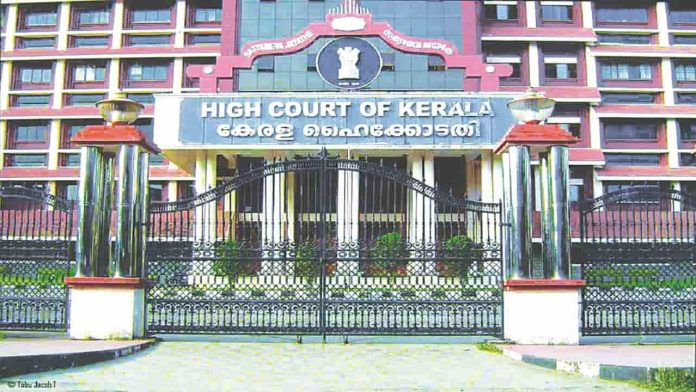The Kerala High Court directed the Secretary, Ministry of Health and Family Welfare, New Delhi, to dispose of the representation of the Petitioner within two months regarding family Medicine departments in medical colleges of the state.
The Division Bench of Chief Justice S. Manikumar and Justice Shaji P. Chaly disposed of a Public Interest Litigation (PIL) filed by Social Health One Health Movement Charitable Trust seeking following reliefs:-
i. Issue a writ of mandamus to the respondents to create a mandatory department of Family Medicine in all Medical Colleges within their authority to train interested students in the field of Family Medicine;
ii. Issue a writ of mandamus to the Additional Chief Secretary , Health and Family Welfare Department , Kerala directing that henceforth the posts in Family Health Centres must be filled only with doctors who have received specialized training in Family Medicine, i.e., MD/DNB/Diploma in Family Medicine;
iii. Issue a writ of mandamus to the respondents directing that the existing doctors appointed in Family Health Centres in Kerala must be given adequate inservice training leading to a diploma/degree in the field of Family Medicine.
The Petitioners have submitted that only an efficient primary health care system (where Family Doctors are the dominant players) can help in focusing on health and wellness scientifically and reducing disease burden and patient load in tertiary care centers like the medical colleges. A Family Doctor is a doctor who works in the community set up and acts as the Doctor of first contact. He/she provides continuous and comprehensive care (from womb to tomb) including emergency and palliative care to all people, irrespective of age and gender. Trained Family Doctors deployed in the community setting, including rural areas, will reduce the disease burden by educating the patients about best health and hygiene practices and also reduce the unnecessary hospital admissions and emergencies needing hospital centered care. Family Medicine Doctors (also called as GPs/Primary Care Doctors) play a very important role in prevention of diseases as well as the promotion of health, thereby reducing the disease burden and health care expenditure.
It is further submitted by the Petitioners before the Court that countries like United Kingdom, Australia, Canada and Cuba had introduced Family Medicine systems decades back. India stands as an outlier among the world countries by its failure or neglect to promote the most needed class of Doctors for the society, i.e., Family Doctors. It is trite law that health is a fundamental right and human right guaranteed under Article 21 of the Constitution of India.
The Petitioners have argued that socio-economic determinants of health (of which people may be unaware) such as access to proper diet, clean water, sanitation facilities, affordability of hygienic surroundings etc. play a determinative role in our overall health. We have seen during Covid-19 as to how disproportionately infectious diseases could affect the people from marginalized sections of society. The specialist care provided by private hospitals is clearly not affordable to the vast majority of persons in the country. Further, the specialist branches of medicine focus on specific diseases and their solutions, that too in a hospital setting, rather than general health and wellness. A focus on wellness and health is the domain of Family Medicine, a field whose potential and value is not adequately understood or developed in the Country.
It is highlighted that the Ministry of Health and Family Welfare recommended in 2002, that at least 25% of all post graduate training seats should be in Family Medicine and that no new postgraduate seats should be started in any medical college unless this condition was fulfilled. These aspects were also highlighted in the National Health Policy 2017 . However, no steps have been initiated to start courses in Family Medicine in our medical colleges. Despite being the best health care model for the rest of India, the State of Kerala has not shown the requisite level of interest in developing Family Medicine as a field of study or practice.
f) It is further submitted that in the circumstances, the petitioners had given representations to the Union and the State Government, respectively. Representations on identical lines were also given to other respondents also. However, those were not considered so far. Therefore, without intervention of this Court, the respondents will not consider the representations.
When the limitations of the Courts in directing mandamus to take a policy decision as prayed for is pointed out, M. R. Rajendran Nair, Senior Counsel appearing for the petitioners, conceded that it is sufficient to dispose of the representation dated 25.08.2021, submitted to the Secretary, Ministry of Health and Family Welfare, New Delhi.


